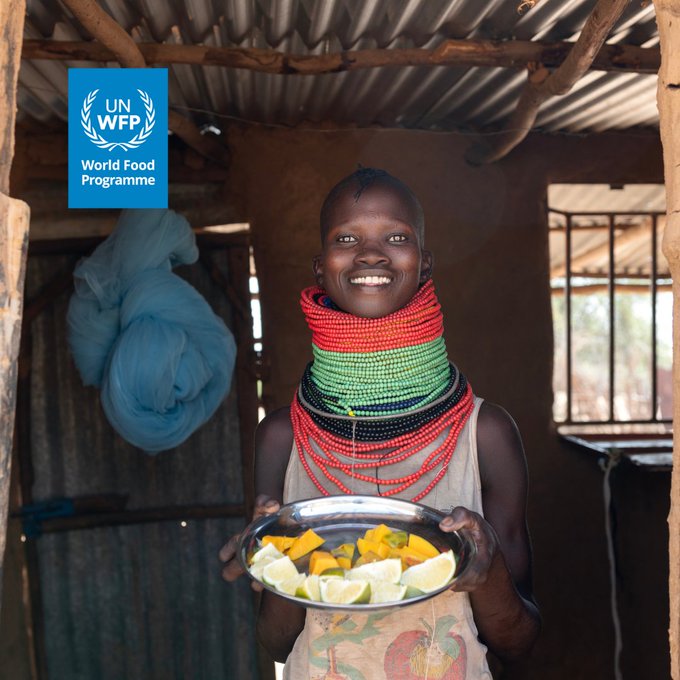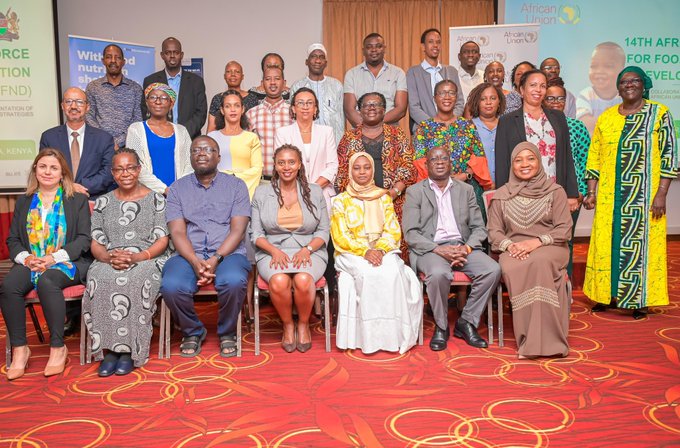BARINGO, Kenya – The World Food Programme’s (WFP) objective of ending hunger can only be accomplished by tackling the root causes of malnutrition.
Providing the proper nourishment at the right time is essential for preventing deaths in humanitarian crises, maintaining lifelong health and development, and ensuring the long-term prosperity of nations.
Against this background, over 500 undernourished children in the Mogotio Sub County of Baringo County have been rehabilitated into a vibrant health status through the implementation of Positive Deviance Health (PDH).
PDH is a behaviour change health model used to combat moderate and mild malnutrition and underweight conditions in children, improve hygiene and sanitation, caring and feeding practices, and health seeking, and improve food production.
The graduation ceremony to celebrate the new health status of the over 500 enrolled children’s journey to proper growth and development was held in Maji Moto and Chemoinoi after PDH was implemented for only three months, registering a 90% success rate, translating to over 450 children being fully rehabilitated.
With the support of WFP and Baringo County’s Department of Health Services, the PDH Model was rolled out in Mogotio Sub County, where mothers from the villages of Maji Moto and Chemoinoi have reclaimed their children’s health with a well-dense communal meal.
How does the PDH Model work
The model organises mothers into groups of 6-12, encouraging them to gather daily, bringing along the little food they have—groundnuts, eggs, vegetables, millet, and fruits—to cook nutritious meals for the vulnerable kids.
With the overall goal of enabling poor communities to independently address the problems of malnutrition with solutions that are affordable and sustainable using locally available foods calculated to fit in the calories required for a child per day, the program also reduces clients’ caseload in local facilities of clients in search for commercial dietary supplements, which are very expensive.
WFP’s Head of Programmes—Kenya Country Office, Francesca Deceglie, who was hosted for the graduation ceremonies by the Chief Officer of Public Health, Evans Ruto, pledged continued support for PDH to ensure more children from low-income communities are freed from malnutrition through locally available solutions.
Proper nutrition is the foundation of good health, growth, and development. It leads to:💪 Stronger immune systems 🤱 Safer pregnancies and childbirth 💙Longer and healthier livesIn Kenya, @WFP is at the forefront of the fight against malnutrition, so that no child is robbed
WFP, through partnership with the business community (The Village Market), played a crucial role in supporting the scale-up of the PDH Model to not only improve children’s nutrition but also to enable mothers to earn an income by selling their surplus kitchen garden produce.
The Departments of Health Services (nutrition section) and Agriculture were key in coordination and carers’ training, respectively.
“Through this program, we advise parents to make sure that their children eat a well-balanced diet and embrace local solutions so they are trained to ensure that in a day, a child gets a full, balanced diet,” said Ruto.
What role do the CHPs play
Speaking at Maji Moto, where at least 123 children graduated, the county officer said that the children had shown significant improvement after undergoing the program.
“They were malnourished when they were being admitted to this program, but at the end, they are now healthy. I also want to extend a hand of appreciation to WFP because of their support in training our Community Health Providers (CHPs), because by training the parents of these children, they get to appreciate the importance of nutrition,” Ruto added.
On her part, Francesca, the WFP Head of Programs, termed the graduation a success, adding that the parents of the graduating children had vowed to maintain their good health.
“So, today was a very positive day; we are helping the government to expand this successful, impactful, and cost-effective program, which is currently in eight counties, and Baringo is the trailblazer with very successful stories,” explained Francesca.
According to Ann Kimwa, the Baringo County Nutrition Coordinator, the PDH program has helped mothers understand the need to embrace balanced diets, farming, and financial literacy in terms of savings.
“We used two cost-effective menus. Each group of a meal costs at least Sh30 to Sh45, and so mothers managing malnutrition at the community level using the available food was an affordable intervention, as we don’t have commodities for the treatment of modern acute malnutrition in most of our facilities,” explained Kimwa.
𝐊𝐞𝐧𝐲𝐚 𝐌𝐚𝐤𝐞𝐬 𝐒𝐭𝐫𝐢𝐝𝐞𝐬 𝐢𝐧 𝐂𝐨𝐦𝐛𝐚𝐭𝐢𝐧𝐠 𝐌𝐚𝐥𝐧𝐮𝐭𝐫𝐢𝐭𝐢𝐨𝐧Kenya’s Ministry of Health, through the State Department of Public Health and Professional Standards, has made significant strides in addressing malnutrition. This progress was acknowledged
Therefore, Kimwa reiterated that embracing PDH is a good model where most children will be managed in the war against malnutrition, especially the moderate, mild, and severe malnutrition.
“We want to appreciate WFP’s support and also the village market for facilitating the CHPs so that they can continue implementing PDH,” Kimwa said.
What else were the mothers trained on
Valery Ng’etich, a resident of Maji Moto, could not hide her joy as she narrated how grateful she was to the Baringo County government, WFP, and other stakeholders for supporting her and other mothers in improving the health of their children.
“This is a very great program because most parents have been feeding their children without enough knowledge on how best it should be done. Children are not fed to get satisfied but should be fed properly so that they are healthy,” observed Valery.
Valery disclosed that the mothers were also trained on the duration of feeding and taking their young ones to health facilities for checkups.
“We are grateful on this day because since we kicked off this program, it has helped our children, and they are looking good. We have not had the right knowledge or the necessary support, but to all those who have supported us to this end, we thank them,’ said the elated mother.
Meanwhile, Francesca indicated that moving forward with WFP, they plan to continue helping the affected communities, for instance, through village saving groups that can help them so that they can save and invest in the diets of their children.
“By growing vegetables on their local farms, they can continue maintaining this healthy diet, and so we shall continue promoting this program. When we go back to Nairobi, we shall promote this program and engage other donors to see if they can support the expansion of the PDH program together with the Kenyan government through the Ministry of Health,” she added.





